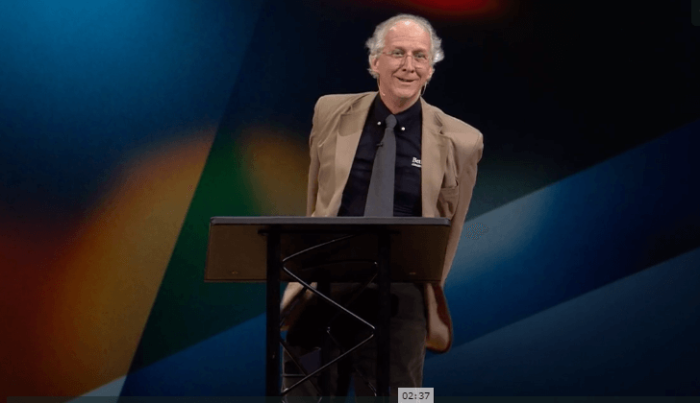John Piper: How to 'Pray the Bible'

Theologian and Desiring God founder John Piper is hailing the practice of poring over the scriptures and praying them in the manner of the earliest Christians.
In a Monday post on Desiring God, the former lead pastor of Bethlehem Baptist Church contended that praying through the text of the Bible is indispensable for without it, prayer almost always "degenerate[s] into vain repetitions that eventually revolve entirely around our immediate private concerns, rather than God's larger purposes."
And using the very words of Scripture in prayer is key.
"We should notice that the early church prayed the Scriptures in Acts 4:24 and following. In fact, they explicitly quote Scriptures," Piper said.
"Threats had been made against them and [the text] says, "They lifted their voices together to God and said, 'Sovereign Lord, who made the heaven and the earth and the sea and everything in them.'"
Such a prayer is evidence that they know the God of Scripture, he argued.
In Acts 4:25–26 the early church prayed: "Who through the mouth of our father David, your servant, said by the Holy Spirit, 'Why did the Gentiles rage, and the peoples plot in vain? The kings of the earth set themselves, and the rulers were gathered together, against the Lord and against his Anointed,'"
"That is a quotation from Psalm 2," Piper explained. "So, we know that the early church prayed back to God the very words that God had given them — for example, in the Psalms."
When Piper prays he said he sometimes employs an IOUS acronym to guide him; I, for "Incline my heart to your testimonies (Psalm 119:36); O, for "Open my eyes to see wonderful things (Psalm 119:18); U, for "Unite my heart to fear your name (Psalm 86:11); and S, for "Satisfy me in the morning with your steadfast love (Psalm 90:14)."
Moreover, many portions of Scripture are themselves prayers and even reading them amounts to praying them if Christians are "awake" and "thinking about what you are doing," he added.
The Bible usually says to us four things, the theologian noted.
"The Scriptures either tell us something about God and Christ when we are reading so that we can praise him. Or, they tell us something about what God and Christ and the Holy Spirit have done so that we can thank him and express faith in it. Or, they tell us what God expects from us so that we can cry out for his help. Or, they tell us about something we failed to do so that we can confess our sins," Piper said.





























